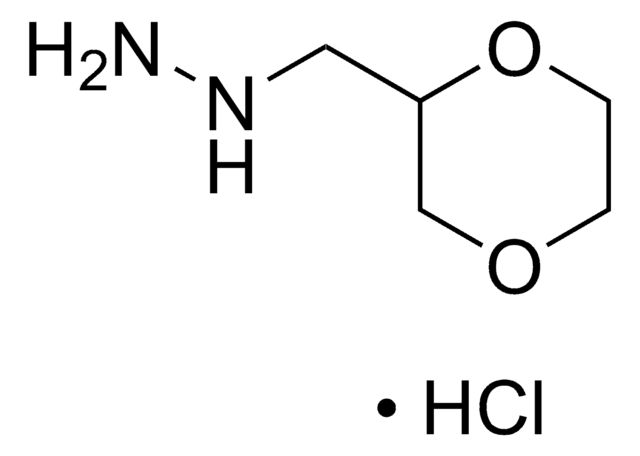ABT1358M
Anti-Versican Antibody, Alpha Domain
serum, from rabbit
Sinónimos:
Chondroitin sulfate proteoglycan core protein 2, Glial hyaluronate-binding protein, GHAP, Large fibroblast proteoglycan, PG-M
About This Item
Productos recomendados
biological source
rabbit
Quality Level
antibody form
serum
antibody product type
primary antibodies
clone
polyclonal
species reactivity
rat
packaging
antibody small pack of 25 μL
technique(s)
immunohistochemistry (formalin-fixed, paraffin-embedded sections): suitable
radioimmunoassay: suitable
western blot: suitable
isotype
IgG
NCBI accession no.
UniProt accession no.
target post-translational modification
unmodified
Gene Information
rat ... Vcan(114122)
General description
Specificity
Immunogen
Application
Immunohistochemistry Analysis: A representative lot detected Versican, Alpha Domain in Embryonic day 16 rat eye, P0, P9 and adult rat retina (Popp, S., et. al. (2004). Exp Eye Res. 79(3):351-6) and Embryonic day 16, 19 rat brain and postnatal day 7 cerebellum, embryonic day 19 spinal cord (Popp, S., et. al. (2003). Dev Dyn. 227(1):143-9).
Western Blotting Analysis: A representative lot detected Versican, Alpha Domainin in purified proteoglycans from a PBS extract of 7-day rat brain with chondroitinase ABC treatment (Popp, S., et. al. (2003). Dev Dyn. 227(1):143-9).
Cell Structure
Quality
Immunohistochemistry Analysis: A 1:1,000 dilution of this antibody detected Versican, Alpha Domain in rat eye retina tissues.
Target description
Physical form
Storage and Stability
Other Notes
Disclaimer
¿No encuentra el producto adecuado?
Pruebe nuestro Herramienta de selección de productos.
Storage Class
12 - Non Combustible Liquids
wgk_germany
WGK 1
flash_point_f
Not applicable
flash_point_c
Not applicable
Certificados de análisis (COA)
Busque Certificados de análisis (COA) introduciendo el número de lote del producto. Los números de lote se encuentran en la etiqueta del producto después de las palabras «Lot» o «Batch»
¿Ya tiene este producto?
Encuentre la documentación para los productos que ha comprado recientemente en la Biblioteca de documentos.
Nuestro equipo de científicos tiene experiencia en todas las áreas de investigación: Ciencias de la vida, Ciencia de los materiales, Síntesis química, Cromatografía, Analítica y muchas otras.
Póngase en contacto con el Servicio técnico








